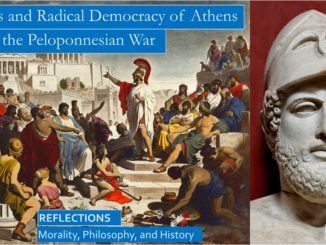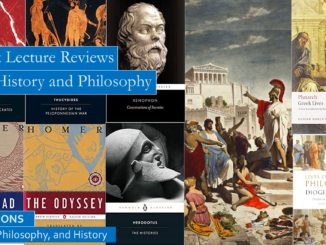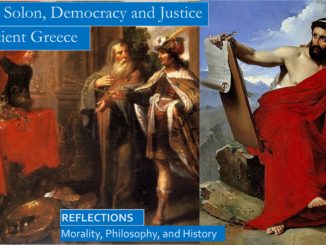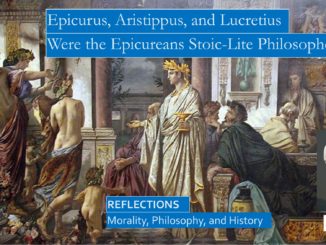Was Epicureanism a cult? Or perhaps we should ask, was Epicureanism like a philosophical fraternity? One prominent scholar, AA Long, suggests that Epicurus’ school of philosophy was more a philosophical community centering on personal friendship than it was a formal school of philosophy. Many ancient philosophers wrote about the virtues of friendship, but the virtues of friendship are core to the Epicurean experience, and the Epicureans sought pleasure through their friendships. This community was egalitarian, it was one of the few in ancient world that admitted women and slaves, and in his letters, Epicurus expresses deep affection for his friends and followers. AA Long says this, “those who committed themselves to Epicurus we not so much students ‘reading for a course’ as men and women dedicated to a certain style of life.” […]




